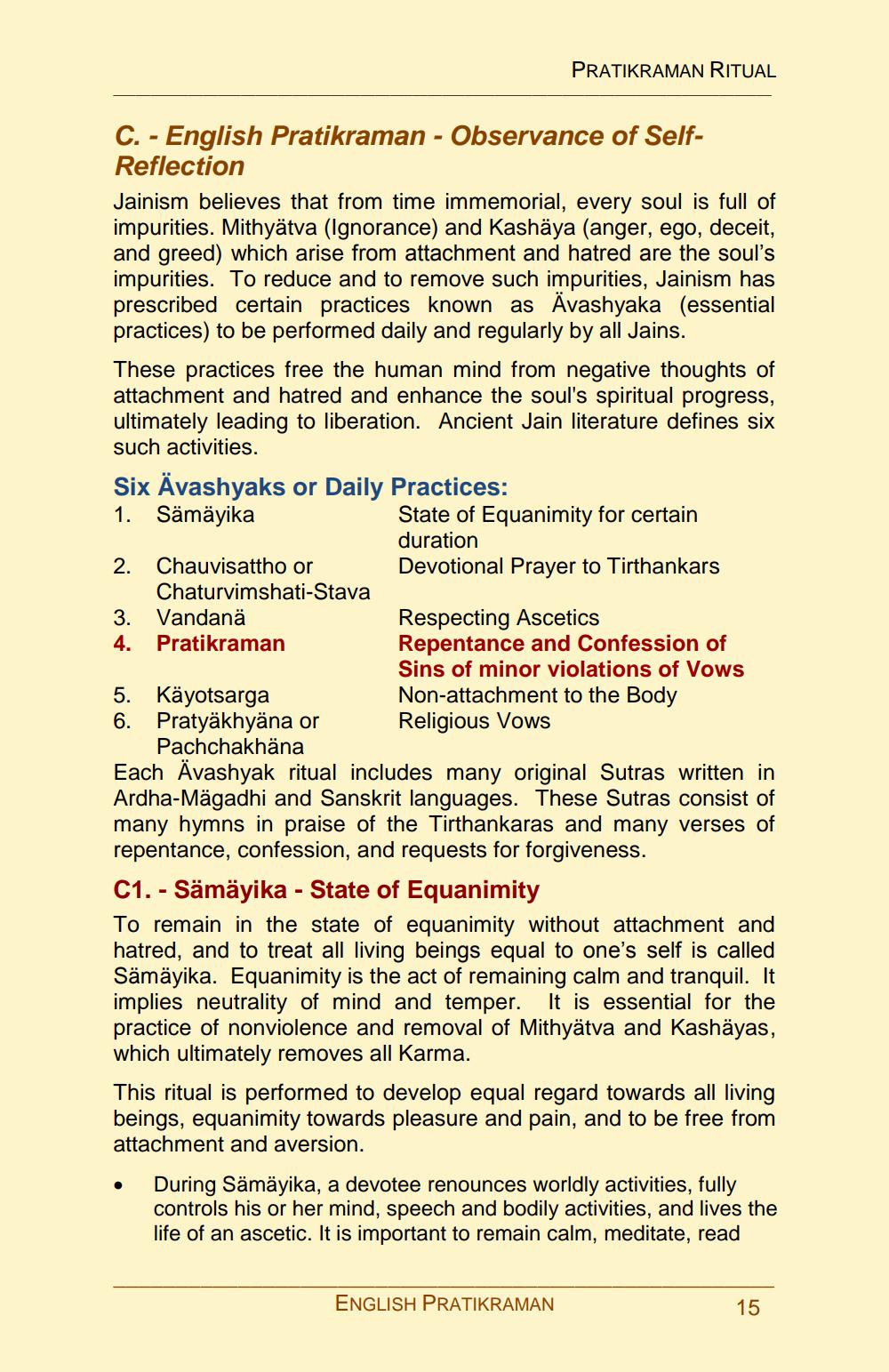________________
C. - English Pratikraman Observance of SelfReflection
Jainism believes that from time immemorial, every soul is full of impurities. Mithyätva (Ignorance) and Kashäya (anger, ego, deceit, and greed) which arise from attachment and hatred are the soul's impurities. To reduce and to remove such impurities, Jainism has prescribed certain practices known as Ävashyaka (essential practices) to be performed daily and regularly by all Jains.
These practices free the human mind from negative thoughts of attachment and hatred and enhance the soul's spiritual progress, ultimately leading to liberation. Ancient Jain literature defines six such activities.
Six Ävashyaks or Daily Practices:
1. Sämäyika
2. Chauvisattho or
3.
4.
Chaturvimshati-Stava
PRATIKRAMAN RITUAL
Vandanä Pratikraman
5. Käyotsarga
6. Pratyäkhyäna or
State of Equanimity for certain duration
Devotional Prayer to Tirthankars
Respecting Ascetics
Repentance and Confession of Sins of minor violations of Vows Non-attachment to the Body Religious Vows
Pachchakhäna
Each Ävashyak ritual includes many original Sutras written in Ardha-Mägadhi and Sanskrit languages. These Sutras consist of many hymns in praise of the Tirthankaras and many verses of repentance, confession, and requests for forgiveness.
C1. - Sämäyika - State of Equanimity
To remain in the state of equanimity without attachment and hatred, and to treat all living beings equal to one's self is called Sämäyika. Equanimity is the act of remaining calm and tranquil. It implies neutrality of mind and temper. It is essential for the practice of nonviolence and removal of Mithyätva and Kashäyas, which ultimately removes all Karma.
This ritual is performed to develop equal regard towards all living beings, equanimity towards pleasure and pain, and to be free from attachment and aversion.
• During Sämäyika, a devotee renounces worldly activities, fully controls his or her mind, speech and bodily activities, and lives the life of an ascetic. It is important to remain calm, meditate, read
ENGLISH PRATIKRAMAN
15




